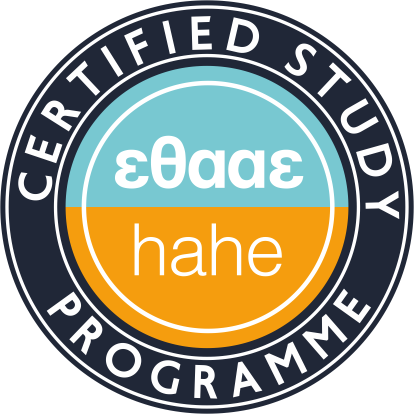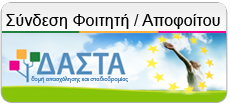Programme Profile
Qualification awarded
Πτυχίο Φιλολογίας (Ptychio Filologias) (Degree in Philology)
Level of qualification
Undergraduate
Specific admission requirements
Upper secondary degree (6 years of studies). National level examination.
Qualification requirements and regulations, profile of the programme and Key learning outcomes
To obtain the Philology Degree students should attend obligatory and elective courses in one of the following areas of specialisation: i) Classics, ii) Medieval and Modern Greek Studies, iii) Linguistics. The elective courses indicate the area of specialisation.
Courses are examined by means of a written or an oral assessment, by continuous assessment through essays, or by a combination of the above.
The undergraduate programme of studies of the School of Philology aims at producing graduates in the field of Greek (Ancient, Medieval and Modern) Language and Literature, of Latin Language and Literature, of Theory and Comparative Literature and of Linguistics. The programme aims to enhance philological, linguistic and literary studies. In practical terms it aims to produce graduates that can be employed in research, education, publishing, translation or other cultural areas.
Consequently, the graduates of the School of Philology, depending on the courses they have selected, may be able to: 1) teach the relevant courses of the secondary education, 2) teach Modern Greek as a mother or second language, 3) contribute to philological, linguistic and literary research, 4) compose, or contribute to textbooks of the relevant courses of the secondary education and of Modern Greek as a mother or second language, 5) contribute to the planning of the relevant courses of the secondary education and of Modern Greek as a mother or second language, 6) work in all areas of publishing, 7) edit or translate works belonging to the areas of Greek (Ancient, Medieval and Modern) Language and Literature, and of Latin Language and Literature, 8) work as researchers in the areas of Greek (Ancient, Medieval and Modern) Language and Literature, of Latin Language and Literature, and of Linguistics, 9) process speech by computational analysis.
Graduates of the School of Philology, further to the basic knowledge of their discipline and profession are able to: 1) apply knowledge in practice, 2) communicate in a foreign language, 3) search, process, analyse and synthesize data and information, use also the necessary technologies, 4) adapt to novel situations and make decisions, 5) work independently or in groups in international and/or interdisciplinary contexts, 6) generate new research ideas and design and manage projects, 7) respect diversity, multiculturalism and the natural environment, 8) demonstrate social, professional and moral responsibility and sensitivity to gender issues, 9) view themselves as well as others critically, 10) promote free, inductive and deductive thinking.
Occupational profiles of graduates with examples
Not Applicable.
Access to further studies
The qualification is a terminal award and allows access to postgraduate studies.
Examination regulations, assessment and grading
A scale of 1 to 10 applies to the marks of each subject in the Hellenic Higher Education:
Άριστα (Arista) Excellent: 8.50-10.00
Λίαν Καλώς (Lian Kalos) Very Good : 6.50- 8.49
Καλώς (Kalos) Good : 5.00-6.49
Ανεπιτυχώς (Anepitychos) Fail: 0 - 4.99
Minimum passing grade : 5
Graduation requirements
8 SEMESTERS, 240 ECTS.
A full academic year is equivalent to 60 ECTS units and each semester to 30 ECTS (European Credit Transfer System) (1ECTS= 25-30 hours). Compliance with the ECTS (European Credit Transfer and Accumulation System) regulations stated in 2007, when the Greek Legistation was harmonized with the relevant European one (Ministerial Decision no Φ.5/89656/β3, art. 1-3, Hellenic Government Gazette no1466/2007/B).
A full academic year is equivalent to 60 ECTS units and each semester to 30 ECTS.
Mode of study
Full-time.


